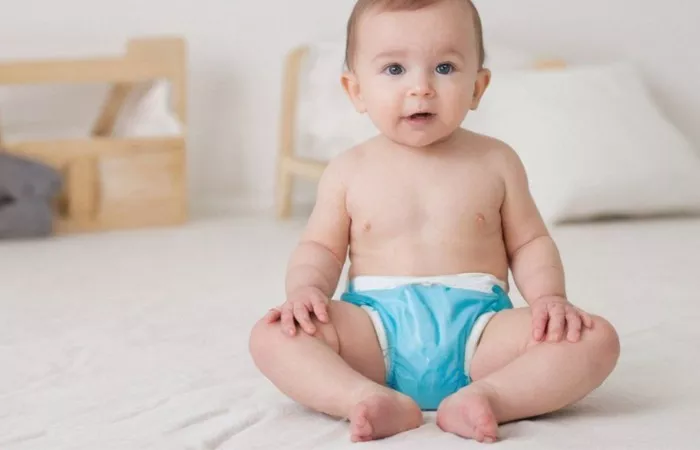Diaper rash is a common skin problem in babies. Sometimes, it gets worse and forms blisters. These are small, red, and filled with fluid. Blisters can hurt and make your baby uncomfortable. It is important to treat them carefully to avoid infection.
Causes of Diaper Rash Blisters
Diaper rash blisters happen when the skin stays wet and irritated. This can come from dirty diapers, tight clothing, or sensitive skin. If not treated, the rash can break the skin, causing blisters and even bleeding.
First Steps to Treat Diaper Rash Blisters
Keep the Skin Clean and Dry
The first thing to do is to keep the area clean and dry. Change diapers often. Gently clean the skin with warm water and a soft cloth. Avoid using baby wipes with alcohol or fragrances, as they can make the rash worse.
Importance of Air Drying
After cleaning, let the area air-dry for a few minutes. Fresh air helps heal the skin faster.
Best Ointments and Creams for Diaper Rash Blisters
Choosing the Right Diaper Cream
Using the right cream is important. Here are safe and effective options:
Zinc Oxide Cream Benefits
This creates a protective layer on the skin. It keeps moisture away and helps blisters heal.
Using Petroleum Jelly for Blister Protection
It soothes the skin and protects it from more damage. Apply a thin layer every diaper change.
Special Diaper Rash Pastes
Some pastes have extra healing ingredients like lanolin or beeswax. These can be helpful for severe cases.
Always check with your pediatrician before trying a new product, especially for newborn health.
Natural Remedies for Diaper Rash Blisters
Gentle Natural Options
Some parents prefer natural remedies. Here are gentle options:
Coconut Oil for Soothing Skin
It has natural anti-bacterial and moisturizing properties. Apply a thin layer to soothe the blisters.
Using Breast Milk to Heal
A few drops of breast milk on the rash can reduce inflammation and promote healing.
Oatmeal Baths for Skin Relief
A lukewarm oatmeal bath can calm irritated skin. Do this once a day until the rash improves.
Natural remedies are safe but should be used with care. If the rash does not improve, seek medical advice.
When to See a Doctor
Warning Signs of Infection
Most diaper rash blisters get better with home care. But if you see any of these signs, call a doctor:
- The blisters are spreading quickly.
- The skin is oozing yellow or green fluid.
- Your baby has a fever.
- The rash does not improve after a few days of treatment.
These may be signs of an infection that needs special medicine.
Preventing Diaper Rash Blisters
Good Diaper Habits
Prevention is better than cure. Here are simple tips:
Frequent Diaper Changes
Keep your baby dry by changing diapers every 2-3 hours or as needed.
Barrier Creams for Protection
Applying a layer of zinc oxide cream can prevent rashes from forming.
Choosing Breathable Diapers
Use diapers that let air flow and avoid tight-fitting ones.
Diaper-Free Time for Healthy Skin
Give your baby diaper-free time daily to let the skin rest.
Good baby daily care routines can keep diaper rash away.
Common Mistakes to Avoid
Using Harsh Products
Parents often make these mistakes when treating diaper rash blisters:
- Using harsh soaps or wipes with alcohol.
Overusing Creams
- Applying too much cream, which can trap moisture.
Ignoring Early Symptoms
- Ignoring early signs of irritation.
Avoiding Talcum Powder
- Using talcum powder, which is not safe for babies’ lungs.
Avoiding these mistakes helps your baby’s skin heal faster.
Simple Diaper Rash Care Routine
Step-by-Step Diaper Change
Follow these easy steps each diaper change:
- Remove the dirty diaper and gently clean the area with warm water.
- Let the skin air-dry or pat gently with a soft towel.
- Apply a thin layer of protective cream or ointment.
- Put on a clean, breathable diaper.
This routine supports kids’ health and keeps skin healthy.
Conclusion
Diaper rash blisters are painful but treatable. With gentle care and the right products, your baby’s skin will heal quickly. Remember to keep the area clean, dry, and protected. Use safe creams and watch for signs of infection. Good diaper habits and daily care will prevent future rashes and keep your baby comfortable and happy.
Related topics:


